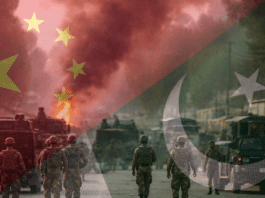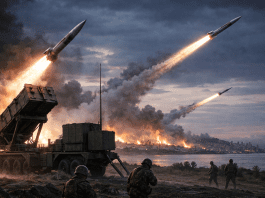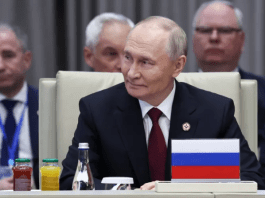The United States has recently proposed to its Group of Seven (G7) allies the idea of imposing sanctions on two key Russian exports: palladium and titanium. While this may sound like just another round of restrictions, it has significant implications for industries worldwide. Palladium and titanium are not just ordinary metals; they are essential components in critical sectors that touch our everyday lives.
Key Metals at Stake: Palladium and Titanium
Palladium is a rare metal widely used in vehicle catalytic converters, which help control emissions and make cars more environmentally friendly. It is also essential for computer chips, which power many of our electronic devices. On the other hand, titanium has a crucial role in high-tech applications, especially in the aerospace industry and in creating medical implants. By focusing on these essential commodities, the U.S. hopes to put further economic pressure on Russia in light of the ongoing crisis in Ukraine, so affecting its financial resources and reducing its ability to continue its war efforts.
Europe’s Heavy Reliance on Russian Metals
For Europe, sanctions on Russian metals could have severe repercussions, especially for nations like Germany, France, and Italy. These countries heavily rely on Russian supplies of palladium and titanium to support their industries. Palladium is particularly significant to the automotive industry, a vital part of the European economy. Similarly, titanium is essential in the aerospace sector, used by major aircraft manufacturers like Airbus to construct aircraft frames, engines, and other critical parts.
Introducing sanctions on these metals is far from simple. For such a move to pass within the European Union (EU), all 27 member countries would need to support it. This collective decision-making process may be complicated due to the potential economic effects across Europe. Restricting access to these metals could increase production costs, disrupt supply chains, and ultimately harm jobs and businesses. This isn’t just a switch that Europe can easily flip; it would involve careful coordination and planning to minimize the economic impact.
Global Market Ripple Effect
Sanctioning Russian metals could also have a ripple effect on the global economy, reaching far beyond Europe. Russia holds a substantial share in the world’s supply of palladium, providing approximately 40% of the total global output. If Russian palladium becomes restricted, finding other sources quickly would be extremely challenging, and global markets would likely see price spikes. In fact, during previous sanctions, palladium prices rose by 12%, indicating how sensitive the market is to supply changes.
The impact would also be felt in the titanium market. U.S. industries, including aerospace companies and medical technology firms, rely on titanium’s unique properties for manufacturing. While the U.S. has already blocklisted Russian titanium to some extent, broader sanctions could lead to price increases and supply disruptions worldwide. Airbus, for example, depends heavily on Russian titanium, and any shortage could affect its production lines. This isn’t just a problem for Europe; it could influence global market stability, potentially raising costs for industries and consumers worldwide.
Disrupting the supply of palladium and titanium could lead to market instability, especially since these metals have few readily available substitutes. Industries that depend on these materials would be forced to look for alternatives, which might be costly or impractical. A shortage of palladium, for instance, could hit the automotive industry hard, pushing up costs for car manufacturers and eventually for consumers. Meanwhile, the aerospace sector’s reliance on titanium means any supply disruption could delay projects and increase costs, impacting everything from passenger aircraft to advanced military systems.
The U.S. Strategy and Its Global Impact
The Biden administration remains firm in its stance that sanctioning Russian metals is a strategic move that can weaken Russia’s economic base, aiming to limit the country’s ability to continue its military efforts. This proposal is part of a larger economic strategy to exert financial pressure on Russia, forcing it to reconsider its actions in Ukraine. The U.S. believes that cutting off a substantial revenue stream from metals like palladium and titanium could hurt Russia’s economy over time, reducing its capacity to fund the conflict.
However, implementing these sanctions requires meticulous coordination among Western allies. Each country involved in the sanctions would need to weigh the economic impacts of restricting these essential metals. For the G7 countries, which include the United States, Canada, Japan, and key European economies, the challenge lies in balancing the political goal of pressuring Russia with the potential economic consequences for their own industries and consumers. It’s a delicate balancing act that highlights the complexity of modern economic diplomacy.
The potential sanctions on Russian palladium and titanium are part of a high-stakes approach by the United States and its allies, hoping to weaken Russia financially. However, this strategy is not without risks. Global industries, especially those involved in automotive, aerospace, and medical technology, rely heavily on these metals, and any disruptions to their supply could lead to significant market instability.







